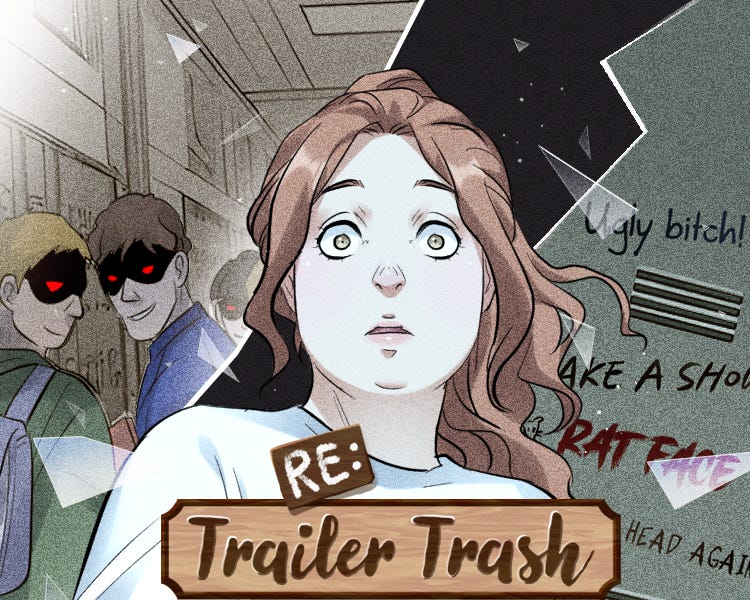
Re:Trailer Trash is a wrenching, quietly funny time‑travel drama that has connected with millions, more than 23.3M views, by turning a tender “do‑over” premise into an intimate exploration of friendship, class, and the slow violence of reputation. The story centers on Tabitha Moore, an adult woman worn down by decades of regret and the humiliating label “Trailer Trash Tabitha.” After a freak MRI accident flings her consciousness back into her sixteen‑year‑old body in 1998, Tabitha faces a wrenching test: given the chance to live those years again, can she truly rewrite the past, or will she learn instead how to live differently inside the consequences she has always carried?
Premise and hook
• Radical second chance: Adult Tabitha’s seasoned memory and hard‑earned self‑knowledge collide with the confusion and limits of a sixteen‑year‑old body, creating scenes that are at once heartbreaking, wry, and uncomfortably honest as she navigates teenage powerlessness with adult clarity.
• The limits of undoing: The comic interrogates the fantasy of “fixing” the past: Tabitha’s impulse to correct old harms runs up against structural forces; class stigma, entrenched cruelty, family dynamics; that don’t simply vanish when you press rewind.
• High‑school drama grounded in consequence: Time‑reset mechanics fuel plot momentum, but the series never lets spectacle eclipse consequence; friendships, first loves, bullying, and parental pressure land with real stakes, making each choice feel consequential for Tabitha’s future and the people around her.
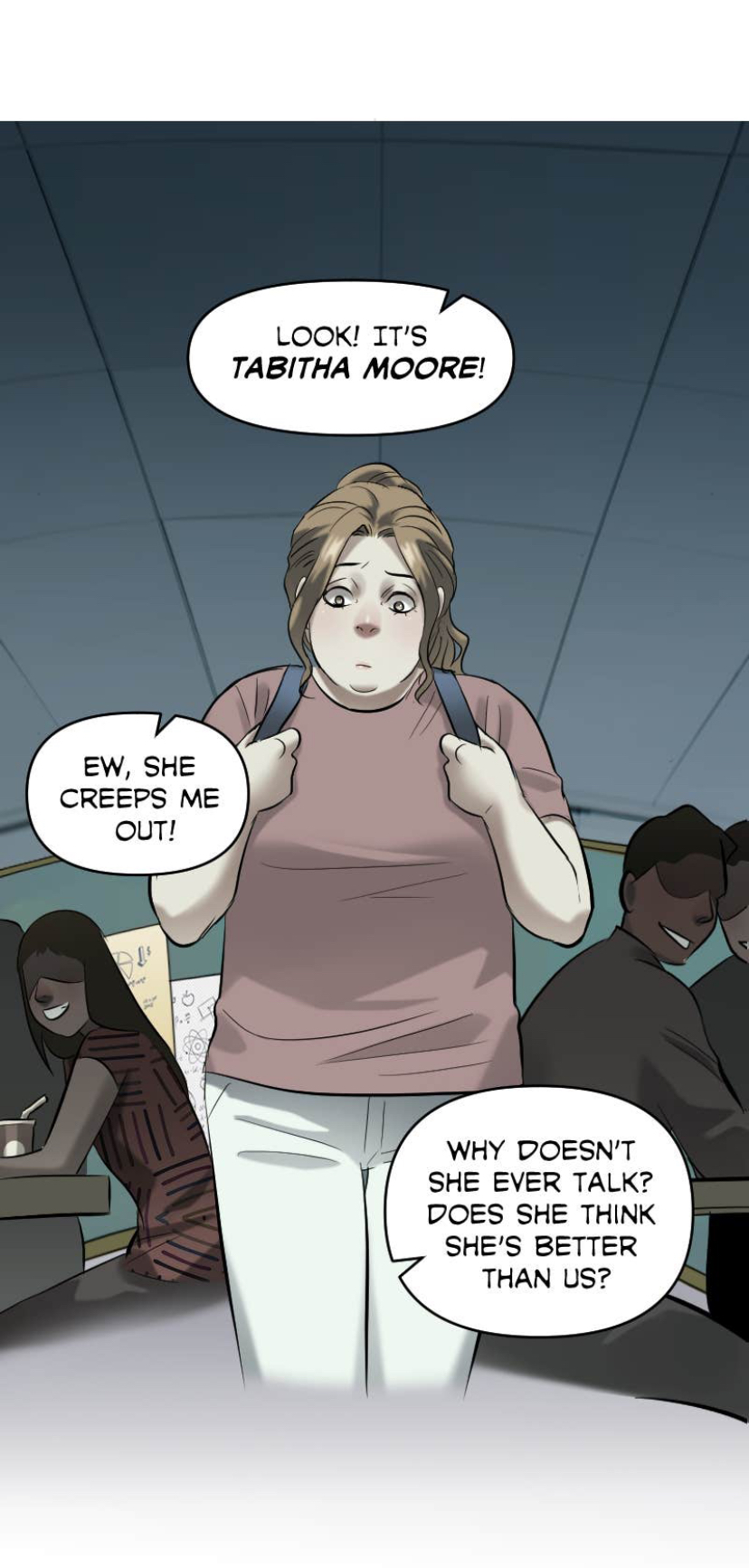
Characters and dynamics
• Tabitha Moore: Sharp‑tongued, world‑weary, and fiercely self‑aware, Tabitha returns to sixteen with a lifetime of adult scars. Her internal narration is equal parts sardonic humor and hard honesty; the comic lets that voice land without flattening her pain, showing the daily, exhausting labor of unmaking shame, setting boundaries, and relearning self‑worth in real time.
• Alicia and Elena: More than sidekicks, these friendships function as emotional rescue missions: warm, messy, and vital. Alicia and Elena provide refuge, challenge Tabitha’s defensive reflexes, and open new possibilities for trust; demonstrating how chosen family can reroute a life and make risk feel survivable.
• Supporting cast: From petty classmates and small‑town gatekeepers to complicated parents and unexpected allies, side characters embody the social pressures Tabitha must confront. Their textures; microaggressions, kindnesses, betrayals, and small mercies; reveal how reputation and class stigma shape choices long before fate does.
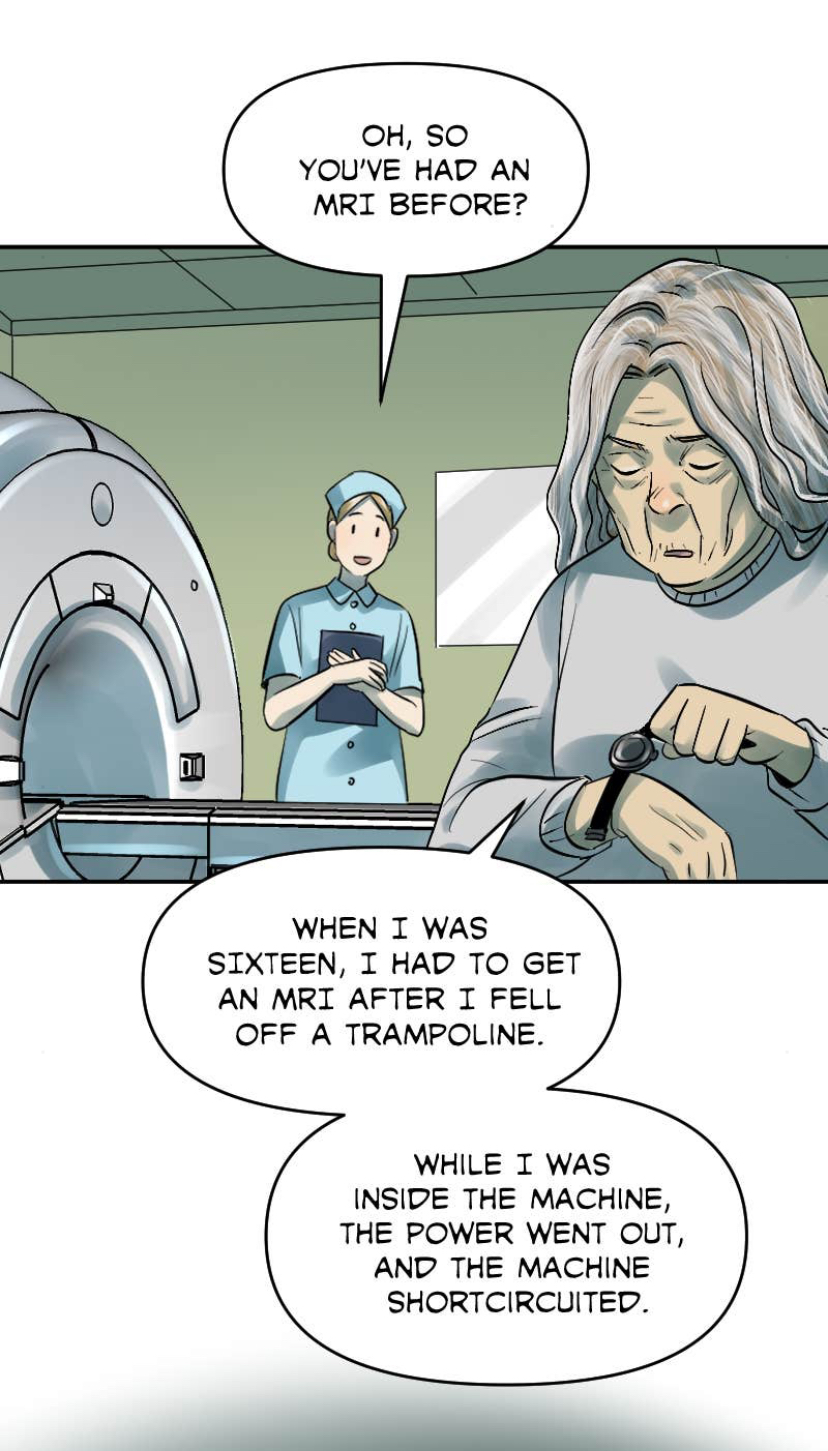
Themes
• Regret, agency, and the limits of fixing: The series treats the do‑over fantasy as a moral experiment: what does responsibility look like when the “present” self can intervene in a younger life? Tabitha’s attempts to undo past hurts reveal that choice and intention matter, but they don’t guarantee neat redemption; some consequences are structural, others are relational, and learning to live with both is its own hard work.
• Class and the mechanics of stigma: The epithet “trailer trash” functions as social capital and a constraint: it determines who is trusted, who is overlooked, and which opportunities are even visible. The comic interrogates that labeling with nuance, showing how stigma is reproduced through small interactions, institutional neglect, and personal shame; while refusing to flatten characters into symbols or moral lessons.
• Friendship as rescue and reckoning: Bonds in Re:Trailer Trash are both sanctuary and battleground. Friendships offer protection, practical help, and emotional repair, but they also demand negotiation: loyalties shift, secrets complicate trust, and the work of care sometimes exposes old fractures. The story treats chosen family as powerful yet imperfect.
• Surrealism anchored in human consequence: Time travel serves less as spectacle and more as a lens for ethical dilemmas and emotional truth. The narrative keeps its feet on the ground: fantastical mechanics amplify stakes without elbowing out the small, everyday costs of trauma, growth, and repair.
• Identity, memory, and narrative authorship: By collapsing adult memory into teenage life, the comic asks who gets to tell your story: you, your community, or the labels others impose. Tabitha’s reclamation is a kind of narrative authorship; she learns not only to change actions but to rewrite the meaning of those actions for herself.
• Compassion over catharsis: Rather than promising tidy closure, the series models a reparative ethic; repair is incremental, messy, and often relational. Moments of catharsis are earned through stubborn persistence and small, realigned choices rather than grand, all‑fixing gestures.
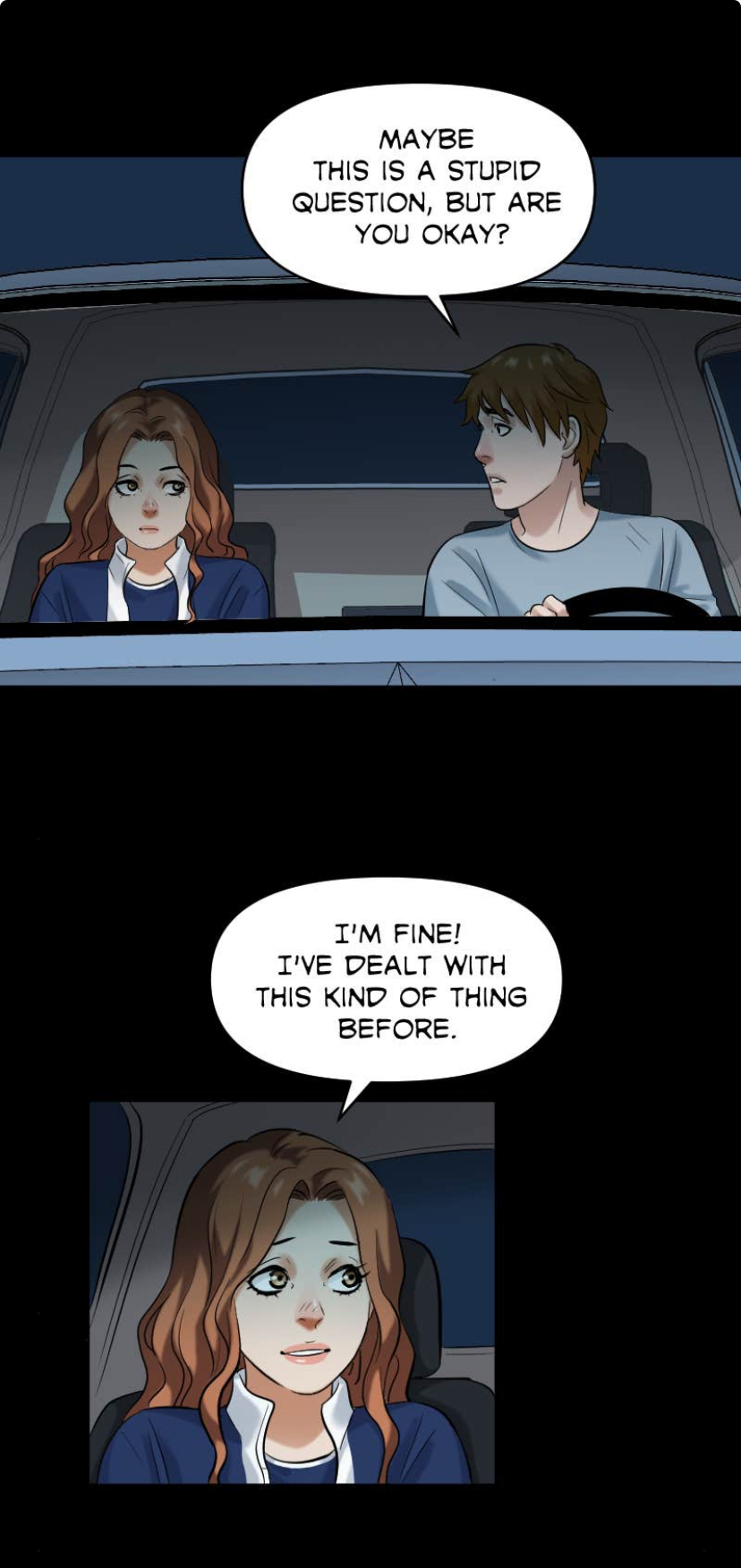
Visuals and tone
• Lush, tactile illustration: Yishan Li’s art roots the series in palpable, period‑specific detail; sun‑faded posters, corded payphones, and wardrobe choices that read like character notes. Her backgrounds and props do narrative work, while faces register micro‑emotions that swing from wry humor to quiet devastation, making every panel feel lived‑in.
• Emotional range with careful calibration: The tone moves effortlessly between warm, slice‑of‑life moments and gutting dramatic turns. Joy and grief share space on the same page so emotional shifts land as honest development rather than melodrama, and the comic trusts readers to hold both laughter and sorrow at once.
• Pacing that honors consequence: Scenes are given room to breathe: small, character‑building beats accumulate across episodes, which makes the story’s surreal, high‑stakes moments hit harder. That measured rhythm rewards patient reading and preserves the gravity of Tabitha’s choices without sacrificing momentum.
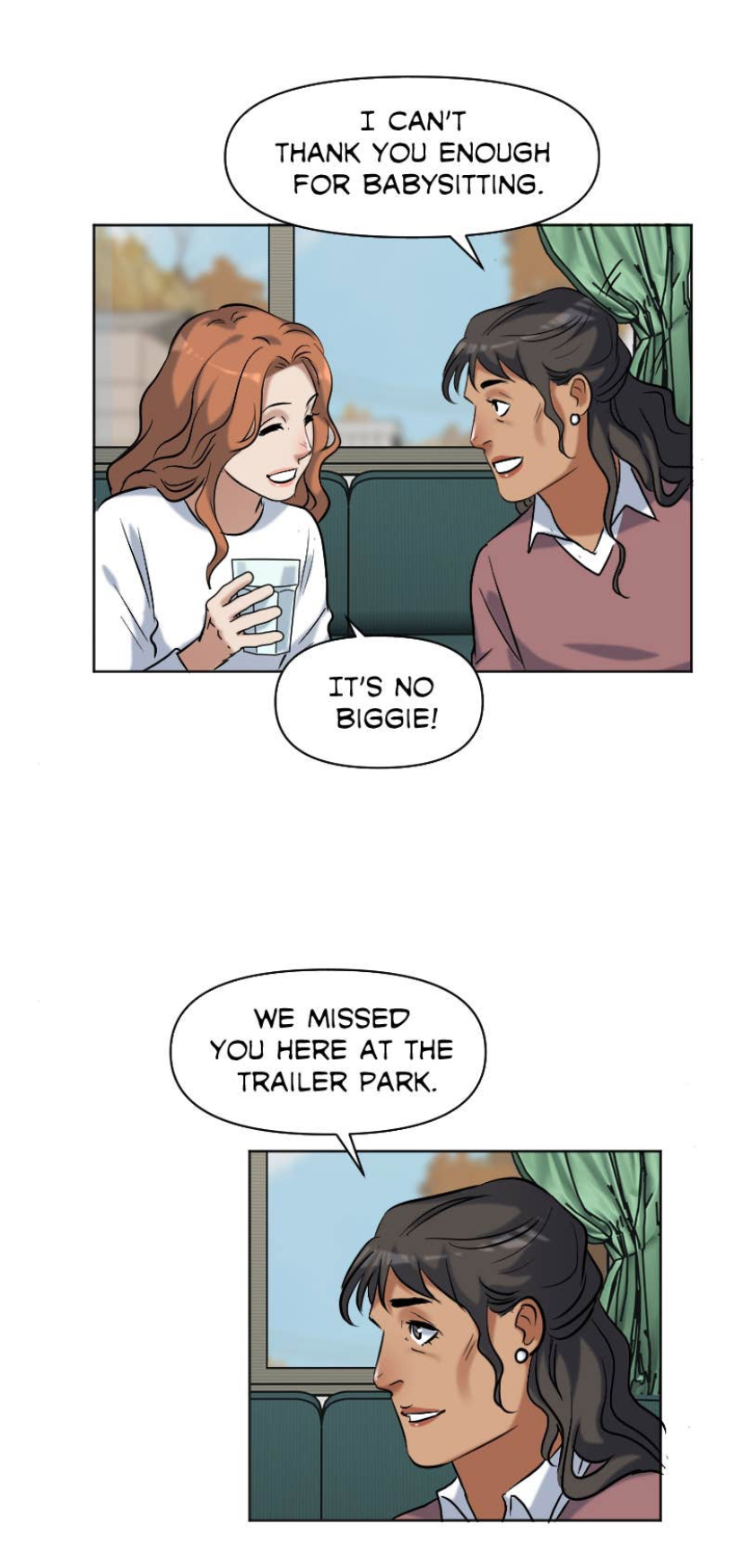
Creators and production
• A collaborative adaptation built to amplify the original: Re:Trailer Trash is the product of a layered creative handoff: the webnovel by FortySixtyFour provided the emotional core, Alyssa Villaire and Natalie Wong (nataliecactus) adapted and expanded that foundation into a serialized script, and Yishan Li translated the material into lush, emotionally precise visuals. The result feels intentionally authored rather than pieced together; careful beats, consistent voice, and a quietly escalating narrative drive attest to a production that respects both the source material and the demands of comics storytelling.
• Practiced craft across disciplines: Adaptation choices show thoughtful restraint: dialogue and internal narration preserve Tabitha’s adult clarity without robbing scenes of teenage immediacy; plotting paces revelations so stakes accumulate rather than explode; and visual storytelling is used to carry subtext, not just spectacle. These cross‑disciplinary decisions; writing, art, and editorial production; make emotional payoffs feel earned.
• Creator transparency and audience conversation: The team openly shares process and influences, with Yishan Li offering sketches, process posts, and Patreon extras that invite readers into the making of the comic. That transparency deepens reader investment and creates a feedback loop that has helped the story mature across seasons.
• Producer support and adaptive evolution: Producer involvement and collaborative edits have allowed the series to refine its focus between seasons: tightening characterization, broadening thematic scope, and smoothing pacing without losing the rawness that made the original resonate. The webtoon’s evolution reads like iterative craft; ambitious, responsive, and committed to telling Tabitha’s story with care.
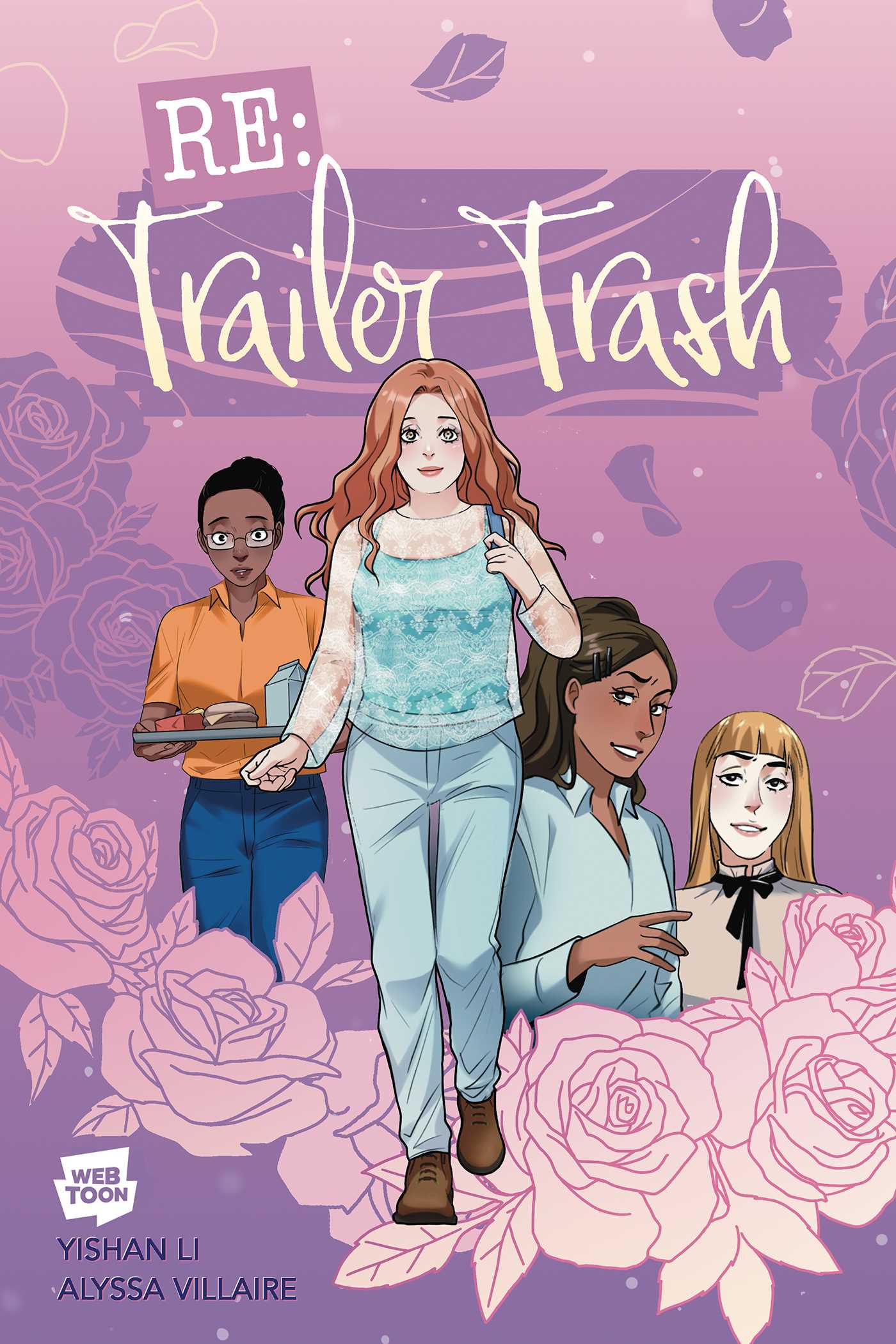
From webtoon to print
• Expanded reach and legitimacy: Re:Trailer Trash moves off the screen with a Vault Comics graphic‑novel edition, RE: Trailer Trash Vol. 1 (WEBTOON Graphic Novel), bringing the serialized story to new readers and bookstore shelves.
• Collector‑ready package: Scheduled for release on March 10, 2026, the 256‑page hardcover/softcover collection (ISBN 9781638493174) distills the web serial’s emotional heft into a single, readable volume that’s easier to gift, lend, or assign.
• Art and reading experience preserved: The print format preserves Yishan Li’s lush visuals and period detail while restructuring episodes for a sustained, livrographic flow that highlights character arcs and thematic payoff.
• Access and institutional potential: A physical edition opens doors to library circulation, classroom adoption, and bookstore discovery, extending the series’ cultural footprint beyond app metrics and fan communities.
Why read Re:Trailer Trash
If you prize second‑chance stories that resist neat endings, Re:Trailer Trash is a rare, quietly devastating gem; equal parts sharp comedy, moral subtlety, and plain‑spoken empathy. Time travel here functions as a magnifying glass, not a plot trick; it reveals how identity is stitched from everyday interactions, reputations, and the people who refuse to let you be defined by your worst day. The series centers friendship as both salvation and complication, showing how chosen family rewrites possibility even when structural harms persist. Its rewards are cumulative rather than theatrical: patient readers earn small, powerful emotional payoffs; moments of recognition, reluctant forgiveness, and durable hope; that stay with you long after the final panel.
Where to follow
• Read on Webtoon Originals: Follow season releases and episode drops on Webtoon Originals to keep up with the serialized story and join ongoing conversation around each chapter.
• Behind‑the‑scenes and extras: Visit Yishan Li’s website and Patreon for process sketches, commentary, and creator notes that illuminate the art and production choices fans love.
• Collected print edition: Pick up the Vault Comics graphic‑novel adaptation (RE: Trailer Trash Vol. 1) for a curated, book‑ready reading experience ideal for gifting, libraries, and longform rereads.